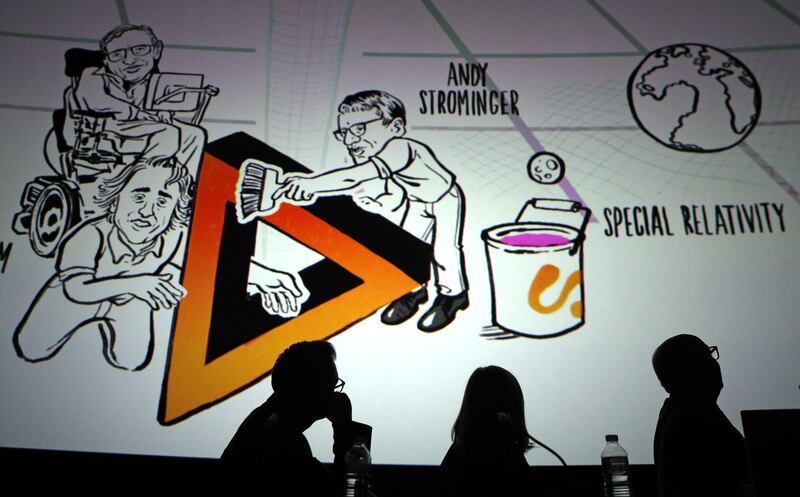A chilling posthumous message from the deceased scientist Stephen Hawking came on Monday, with him warning that science and education are under threat around the world.
The scientist, who died in March aged 76, spoke through his final book Brief Answers to the Big Questions.
Hawking's work, which tackles 10 questions ranging from the existence of God to the potential for time travel, has been completed by his children after the renowned British theoretical physicist's death. In a broadcast announcement at the London book launch, Mr Hawking warned that education and science were in “in danger now more than ever before”.
He then cited US President Donald Trump and the UK vote to leave the EU as part of “a global revolt against experts, and that includes scientists”.
_______________
Read more:
Has a colleague of Stephen Hawking's just found evidence of a universe before this one?
Hawking's voice soars into space as his remains are buried
Stephen Hawking: A man of mind-boggling achievements and defiance
_______________
Despite major challenges lying ahead, the scientist urged young people to “to look up at the stars and not down at your feet”.
“Try to make sense of what you see, and wonder about what makes the universe exist,” he said. “It matters that you don’t give up. Unleash your imagination. Shape the future.”
Hawking's daughter Lucy said hearing her father's voice at the launch had been "very emotional".
“I turned away, because I had tears forming in my eyes,” she said. “I feel sometimes like he’s still here because we talk about him and we hear his voice and we see images of him, and then we have the reminder that he’s left us.”
In the book, Hawkins also addresses some of the most debated scientific subjects, such as machines taking over the world and the existence of intelligent life in space.
He delivered a staunch warning on the importance of controlling artificial intelligence, which could "in the future develop a will of its own … that is in conflict with ours". A possible arms race over autonomous-weapons should be stopped before it can start, he wrote.
“The advent of super-intelligent AI would be either the best or the worst thing ever to happen to humanity. The real risk with AI isn’t malice but competence. A super-intelligent AI will be extremely good at accomplishing its goals, and if those goals aren’t aligned with ours we’re in trouble.”
Hawkins also predicted that a breed of super-humans will take over, having used genetic engineering to surpass other humans.
In the next 1,000 years, when a nuclear war or environmental calamity will “cripple Earth,” super-humans will have found a way to survive the disaster. However, the Earth’s other species are doomed to extinction, he said.






